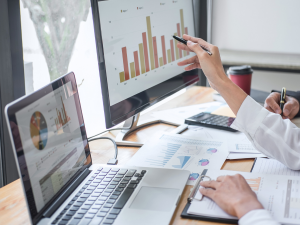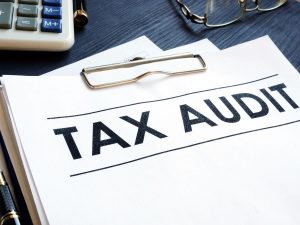Are there tax benefits for homeowners?
If you are an owner-occupier or property investor, owning a home can provide some really important tax benefits. Here, we break down six types of deductions you can clam when you own a home or an investment property.
1 Depreciation
If you currently own an investment property, there is a good chance that you are entitled to claim depreciation. Without getting too technical, this includes the cost of any decline in value to the building’s structure, or decline in value of any permanent fixtures, which includes things like carpets, window blinds, ovens and rangehoods.
Depreciation is a particularly important deduction if you happen to buy a relatively new or near new property. This is because permanent fixtures and fittings are normally valued higher, and as a result they typically lose value faster. Prior to being able to claim depreciation, you should consider engaging a quantity surveyor to create a formalised depreciation schedule.
If you have a dedicated home office and you work from that office full time, you can also claim depreciation. Permanent fixtures like carpets, lighting, and blinds, as well as your office equipment and furniture can be included in your depreciation schedule.
2 Mortgage interest
If you own a residential investment property, one of the major benefits of ownership is that you can claim tax deductions for the interest you pay on your home loan. This investment strategy is called ‘negative gearing’. Adopting this strategy means you make a short term loss on your investment property because your ongoing costs including your mortgage repayments, advertising for tenants, property management, and depreciation costs are higher than the money you make on rent. In exchange, however, you get favourable tax treatment, with potential for capital growth in the longer term.
Those who choose to adopt this strategy typically elect to take on an interest-only loan. This reduces the cost of servicing the loan, but still allows you access to all of the tax benefits associated with negative gearing. The disadvantage of this approach is that because you are only paying off the interest portion of the loan (and not the principal amount), you will not be able to build equity in your investment property, other than its capital growth.
3 Repairs, renovations and improvements
One of the things that property investors usually worry about is the cost of repairs and maintenance. However, if you are an investment property owner, there is a good likelihood that you can claim back any costs related to maintenance and repairs of your investment property. Things like plumbing, painting, electrical work, appliances and roofing can all typically be claimed.
If the work is more substantial, like for example an extension or a renovation of part or all of the property, any costs you incur are generally classified as capital works. This means that you will need to spread the deductions for these costs over a longer period, usually between 25 and 40 years.
4 Home offices
As an owner-occupier, if your primary place of business is a home office, and you have a dedicated space in your home for it, you could be eligible for some significant tax deductions. This could potentially include interest paid on your home loan, your home insurance costs, and any maintenance costs such as cleaning.
The total amount you can claim depends on a range of factors including how much interest you are paying, your insurance costs, and the proportion of floor space in your home that is dedicated to your home office, compared to your total floorspace.
These deductions could potentially save you thousands of dollars each year if you are an owner-occupier. The disadvantage, however, is that if you sell your home, the portion of floorspace that you have assigned to your home office could attract Capital Gains Tax (CGT), while your main residence will most likely remain free of Capital Gains Tax.
5 Running costs
If you are an owner-occupier, you may still be able to claim a tax deduction for running costs, even if you don’t work from home full time or have a dedicated home office. Basically, you get a tax break on the expenses you incur when working from home instead of going into the office.
Typically, expenses include things like electricity costs that are outside of what you would use if you were not working from home, cleaning, internet and phone costs, printing, and any office equipment you need to purchase. The depreciation on items can usually only be claimed on items over $300, and not the full amount. The Australian Taxation Office provides a simple formula for working out your running costs. Check it out here.
6 Renting out rooms
As an owner occupier, if you rent out a room, you could still be able to claim some of the same deductions as a property investor. In this situation, the ATO will treat your room in the same way as an investment property, allowing you to apportion expenses depending on the floor area of the space being rented out, compared to the overall floor space of your property.
You need to be careful though, as you can only claim expenses for period when your room is occupied by tenants. Similarly to a home office, there is a chance you will attract Capital Gains Tax over the portion of your home you rent out, in the event you sell th property.
Keep your receipts and documentation
As you have seen here, both property investors and owner-occupiers can claim significant tax deductions for the properties they own. Like anything tax related, it is always important you keep your receipts and documentation.
Remember, everyone’s circumstances and situation is different, and it is always best to speak to your accountant about what you are eligible to claim. If you do not get expert advice, the penalties can be high. At DD’s Taxation & Accounting, we can help with all of your individual tax reporting, and property investment reporting, and provide you with advice about what you are eligible to claim. If you would like to get in touch, please call us on 03 9761 9090 or email us on enquiries@ddstax.com.au.




